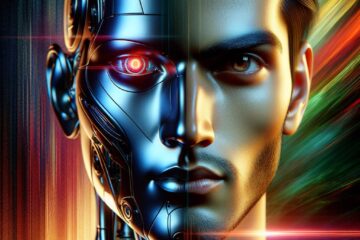Artificial intelligence, commonly referred to as AI, has ingrained itself into every aspect of our daily life. In this article, we’ll unravel the mysteries surrounding AI and delve into how it’s transforming the way we live, work, and interact with technology.
AI in Everyday Life
The Prevalence of AI
AI is no longer confined to science fiction; it’s a ubiquitous presence in our lives. From voice-activated assistants to recommendation algorithms on streaming platforms, AI is all around us. To truly appreciate its impact, let’s demystify the core concepts of AI.
Demystifying AI
Understanding AI
Fundamentally, AI refers to a machine’s capacity to imitate human intelligence. This involves tasks like problem-solving, learning from data, and making decisions. The goal of machine learning, a branch of artificial intelligence, is to develop algorithms that can learn and advance without being explicitly programmed.
Machine Learning
Machine Learning, a crucial aspect of AI, empowers systems to learn and adapt through data analysis. This is the technology behind personalized recommendations on e-commerce sites and predictive text on your smartphone’s keyboard.
AI Applications
AI in Healthcare
AI is making significant strides in healthcare. It assists in diagnosing diseases, creating treatment plans, and even predicting patient outcomes. For instance, AI-driven tools can analyze medical images, such as X-rays and MRIs, with remarkable accuracy.
AI in Smart Devices
Smart devices have become smarter, thanks to AI. Your virtual assistants, like Siri or Alexa, rely on AI algorithms to understand and respond to your voice commands. They can perform tasks like setting reminders, playing music, or providing weather updates.
AI in Finance
In the financial sector, AI is revolutionizing trading and fraud detection. Algorithms analyze market data at lightning speed, making automated trading decisions. Moreover, AI helps identify fraudulent activities and protect your financial assets.
Impact on Daily Life
Improved Convenience
One of the most noticeable impacts of AI is the convenience it brings to our lives. Smart thermostats adjust the temperature in your home to your preferences, while navigation apps use AI to find the fastest route during your commute.
Enhancing Efficiency
AI streamlines processes and reduces manual labor. Robots with artificial intelligence (AI) can construct goods quickly and precisely in production. In offices, AI-driven software can automate repetitive tasks, allowing employees to focus on more complex work.
Concerns and Misconceptions
Privacy Concerns
AI’s ability to collect and analyze data raises concerns about privacy. Questions about who has access to your data and how it’s used are valid. Regulations like GDPR aim to address these concerns and protect personal information.
Job Displacement
The fear of job displacement due to automation is a common misconception. While AI may change the nature of some jobs, it also creates new roles. People are needed to develop, maintain, and oversee AI systems.
Conclusion
Artificial Intelligence is no longer an enigma; it’s a transformative force that shapes our daily lives. Embracing AI with a clear understanding of its capabilities and limitations is key to making the most of this technological revolution.



